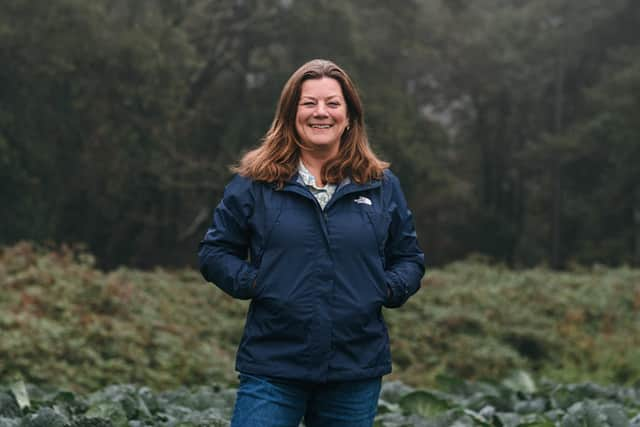Calls for countryside accommodation and tourism businesses to pay less VAT to boost rural economy
The CLA, which represents nearly 27,000 farmers, landowners and rural businesses in England and Wales, has submitted written representations to the Treasury to be considered as part of the decision-making process in the lead-up to the Budget on March 6.
Key recommendations to help level up the rural economy and deliver the government’s net zero objectives include calls to:
Advertisement
Hide AdAdvertisement
Hide Ad• Support the rural tourism sector, so there needs to be a permanent reduction in VAT to 12.5 per cent for accommodation and attractions enterprises.


• Support the decarbonisation of owner-occupied and rented homes with more people being able to qualify for the zero-rate of VAT on energy-saving materials. This can be done by extending relief to the purchase of energy-saving materials as well as their installation.
• Simplify the tax system and encourage investment in agricultural buildings, equipment, and infrastructure which will ultimately modernise the sector and drive productivity growth. This means, in particular: extending the full expensing regime to unincorporated businesses; and extending the annual investment allowance and the writing down allowances to include buildings and structures.
• Provide certainty for landowners wishing to deliver environment land management or ecosystem services by confirming at the Budget that it will proceed with legislation to ensure that land used for environmental delivery/ecosystem services is not subject to inheritance tax.
Advertisement
Hide AdAdvertisement
Hide Ad• Keep the framework of capital taxes stable to give confidence to those planning the reorganisation of substantial but illiquid capital assets, given land is a significant input to their businesses.


CLA President Victoria Vyvyan said: “The CLA and its members are well-placed to help Government achieve its ambitions to deliver growth and create a fairer and greener country.
“To enable growth in the rural economy, the Government needs to fund the agricultural transition so that we can grow food and enhance the environment. They also need to stimulate capital investment in agricultural businesses and create a tax system that doesn't penalise farmers and land managers for providing environmental land management and eco-system services.
“Rural tourism is an important and exciting sector, accounting for over 70 per cent of domestic tourism, but VAT rates need to be internationally competitive to help it reach its full potential. France and Spain pay half the VAT we do and that undermines our competitiveness.
Advertisement
Hide AdAdvertisement
Hide Ad“With VAT permanently at 12.5 per cent, we estimate that over a 10-year period, the tourism sector would be able to stimulate an additional £2bn for the rural economy, generating extra revenue for the Treasury.”
Rural tourism accounts for 70 to 80 per cent of all domestic UK tourism and adds £14.56bn to England and Wales’ Gross Value Added.
Tourism represents a large portion of CLA members’ business interests, and a 2020 survey showed that 39 per cent of its members had a tourism-focused business.
Change to agricultural subsidies post-Brexit means that farming businesses in England will lose a total of £1.87bn income a year from 2028 and it is expected that, on average, around 50 per cent of this loss will be recouped from environmental schemes.
Advertisement
Hide AdAdvertisement
Hide AdThe CLA believes that the other 50 per cent, approximately £935m, needs to be made up through diversification opportunities, such as tourism.
Tourism businesses – particularly those involved in overnight stays – have seen further cost increases, such as food prices, laundry, housekeeping and depreciation of goods, which may be greater than inflation.
Other measures that the CLA has previously put forward to reinvigorate rural tourism included: introduction of restrictions on personal use to qualify for the Furnished Holiday Let regime; re-establishment of the Rural Tourism Partnership; a single business unit to simplify tax administration for diversified businesses; and to extend Permitted Development Rights for temporary uses of land.
Despite the challenges, there is no shortage of accommodation and over-supply has been cited as a concern as increased regulation in the private rented sector has caused some properties to shift from the private rented sector to the self-catered accommodation sector.
Comment Guidelines
National World encourages reader discussion on our stories. User feedback, insights and back-and-forth exchanges add a rich layer of context to reporting. Please review our Community Guidelines before commenting.
